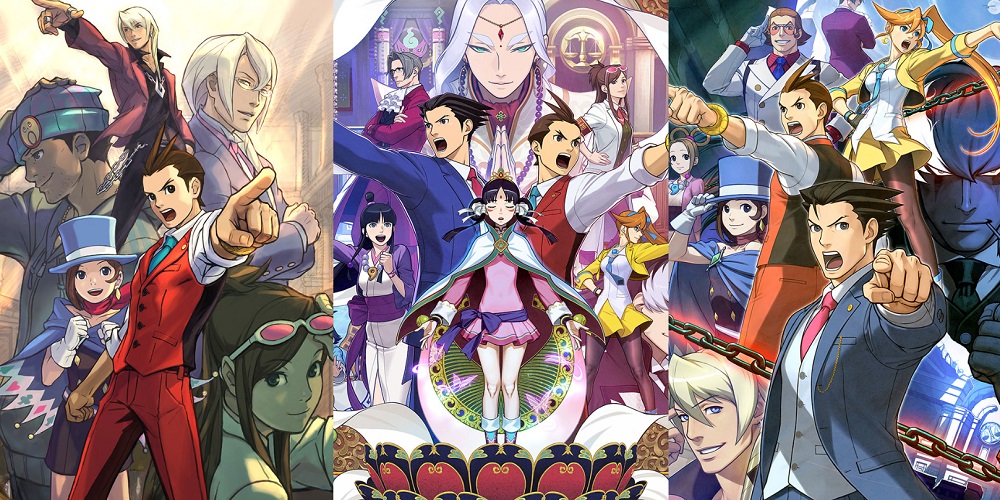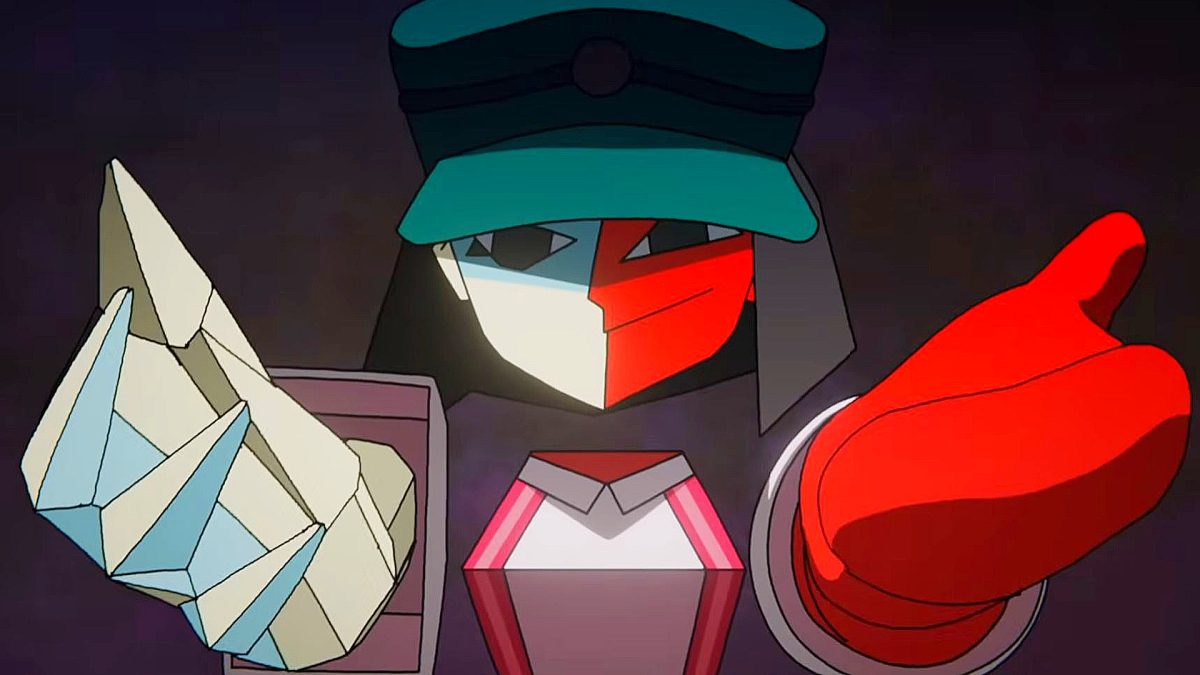Debuting in 2001, the Ace Attorney series didn’t just hit the scene; it exploded into the gaming world, captivating fans and skyrocketing in popularity. This series gave birth to the courtroom battle genre of text adventure games. Following the original Phoenix Wright trilogy, Wright passes the torch to his student Apollo Justice and watches his growth to become a great lawyer in the three games of “Apollo Justice: Ace Attorney Trilogy.”
Similar to the original Phoenix Wright trilogy games, the first game, “Apollo Justice: Ace Attorney” was originally released on the Nintendo DS in 2007. It follows the beginning of Justice’s journey to become a great defense attorney, just like the original game, “Phoenix Wright: Ace Attorney”. Despite being an older game, it’s been remastered and upscaled to be more visually appealing. It follows the same gameplay style as the original games: a scene plays, you’re notified of a crime, and you explore different locations to interview witnesses and find clues to use in court. After extensive preparation, your day in court arrives. You either press information out of the witnesses, or find contradicting information from their testimonies using the evidence you collected. However, you can only error up to 6-7 times when presenting information in court. If you succeed, you will get a victory screen showing the judge on the podium, saying “Not Guilty.” Alternatively, the same screen will pop up if you fail, but it’ll say “Guilty” instead.
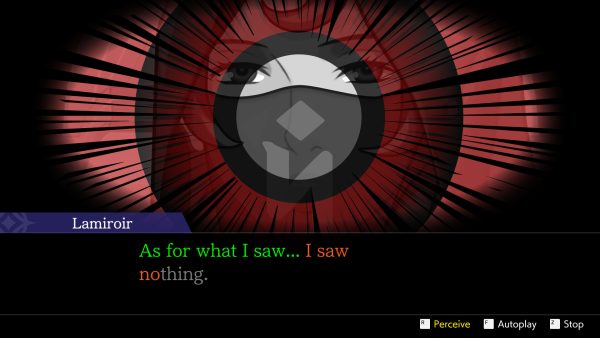 However, when you’re in court questioning witnesses, there’s a new gameplay mechanic called “Perceive,” which is unique to Apollo’s character. It helps you spot “tells,” which are small things people do when they lie. It helps determine if a witness is being truthful, adding a new, dynamic element to the gameplay. The game also introduces a new, laid-back soundtrack that contains music from the original Phoenix Wright games, culminating in a nostalgic feel. As someone who played the original games, it’s cool to hear these songs again.
However, when you’re in court questioning witnesses, there’s a new gameplay mechanic called “Perceive,” which is unique to Apollo’s character. It helps you spot “tells,” which are small things people do when they lie. It helps determine if a witness is being truthful, adding a new, dynamic element to the gameplay. The game also introduces a new, laid-back soundtrack that contains music from the original Phoenix Wright games, culminating in a nostalgic feel. As someone who played the original games, it’s cool to hear these songs again.
Originally released on the Nintendo 3DS, the second and third games, “Phoenix Wright: Ace Attorney: Dual Destinies” and “Phoenix Wright Ace Attorney: Spirit of Justice” introduce new visual changes. Despite removing “Apollo Justice” from the title, Apollo Justice is still a part of these games, appearing alongside Phoenix Wright.
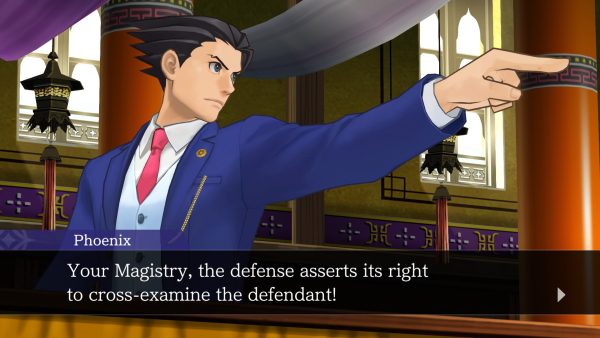 Both games have genuine “anime” cutscenes with voice lines and also feature 3D models for the characters instead of just 2D “sprites.” Even though things have changed visually since its original release on the 3DS, the gameplay is still relatively similar to the first game. The second game, “Dual Destinies” also introduces a new gameplay mechanic called the “Mood Matrix” which is a tool that is used to analyze the emotions of witnesses during testimonies. Additionally, the third game, Spirit of Justice, introduces a new setting for the game, taking place in the mystical kingdom of Khura’in, rather than the usual setting of the fictional version of Los Angeles.
Both games have genuine “anime” cutscenes with voice lines and also feature 3D models for the characters instead of just 2D “sprites.” Even though things have changed visually since its original release on the 3DS, the gameplay is still relatively similar to the first game. The second game, “Dual Destinies” also introduces a new gameplay mechanic called the “Mood Matrix” which is a tool that is used to analyze the emotions of witnesses during testimonies. Additionally, the third game, Spirit of Justice, introduces a new setting for the game, taking place in the mystical kingdom of Khura’in, rather than the usual setting of the fictional version of Los Angeles.
Other interesting features that the game introduces include the ability to choose the different background music you hear when selecting a game, and the ability to play chapters from any game from the main menu. Previously, players would have to select the previous chapter of the game to access the different chapters. I think this is a cool feature, especially since I can just skip to any trial that I want, from any game I want to.
If you’re stuck trying to find out what to do within all three games or are feeling a bit bored, but want to know how the story goes, you can turn on the new feature called “Story Mode.” This mode plays the game for you and allows the player to watch, an appealing mechanic for new, experienced players of the Ace Attorney franchise. I find this helpful because it gets rid of the process of going on YouTube to figure out what to do.
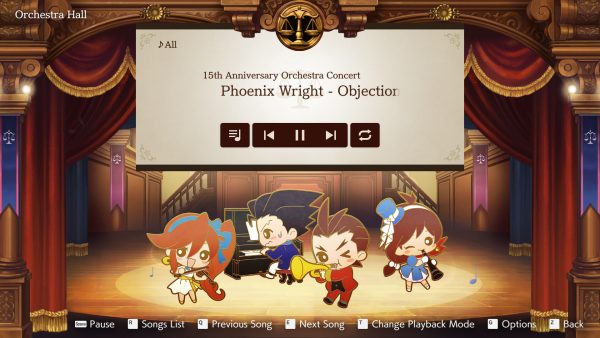 Finally, the game introduces a “Museum” tab with four sections: “Orchestra Hall,” “Art Library,” “Animation Studio,” and “Accolades.” With this feature, you can enjoy your favorite music, explore art, and engage in court scenarios while viewing your achievements across the three games. I enjoy going through the “Animation Studio” and going through all the facial expressions each character has. On top of that, I love listening to the laid-back music in the Ace Attorney series. The remaster adds new elements, making each challenge enjoyable as it tests your evidence-gathering and courtroom skills.
Finally, the game introduces a “Museum” tab with four sections: “Orchestra Hall,” “Art Library,” “Animation Studio,” and “Accolades.” With this feature, you can enjoy your favorite music, explore art, and engage in court scenarios while viewing your achievements across the three games. I enjoy going through the “Animation Studio” and going through all the facial expressions each character has. On top of that, I love listening to the laid-back music in the Ace Attorney series. The remaster adds new elements, making each challenge enjoyable as it tests your evidence-gathering and courtroom skills.
The interesting, mysterious, and confusing trials of “Apollo Justice: Ace Attorney Trilogy” continue to pull me back in. There are many different lovable characters and stories are fun and interesting to play through. Ever since I played “Phoenix Wright: Ace Attorney,” the Ace Attorney franchise has had a special place in my heart and this collection of games is no different.

